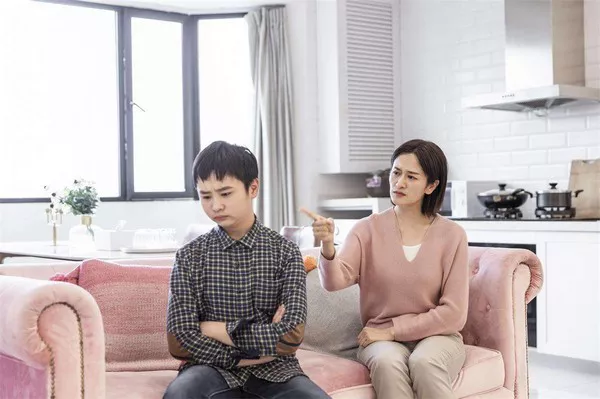Marriage counseling is a specialized area within the field of counseling that focuses on helping couples navigate relationship challenges, improve communication, and strengthen their bond. If you have an interest in becoming a marriage counselor, it’s important to understand the educational requirements and the pathway to obtaining the necessary degree. This article aims to provide insights into the degree needed to become a marriage counselor, highlighting the educational options available and the skills required for success in this rewarding profession.
The Role of a Marriage Counselor
A marriage counselor, also known as a couples therapist or marriage and family therapist, is a mental health professional who specializes in working with couples to address relationship issues. Marriage counselors help couples identify and resolve conflicts, improve communication patterns, and develop strategies for creating healthier and more satisfying relationships. They employ various therapeutic techniques and interventions to support couples in achieving their goals.
Educational Pathway
To become a marriage counselor, you will need to pursue a specific educational pathway that includes obtaining a relevant degree in counseling or a related field. The required degree will vary depending on the country and specific licensing requirements. However, the most common degrees for marriage counselors include:
Master’s Degree in Marriage and Family Therapy
One common pathway to becoming a marriage counselor is by obtaining a master’s degree in marriage and family therapy (MFT) or a closely related field. This specialized program provides comprehensive training in working with couples and families, equipping students with the necessary skills and knowledge to address relational issues. Coursework in an MFT program typically covers topics such as family systems theory, couples counseling techniques, human development, ethics, and cultural diversity.
During their training, students gain practical experience through supervised internships or practicums, where they work directly with couples under the guidance of experienced professionals. These hands-on experiences are crucial for developing the necessary clinical skills and building confidence in working with diverse populations. Upon completion of the master’s degree, graduates may need to fulfill additional requirements, such as supervised post-degree clinical hours and passing a licensing examination, to practice as marriage counselors.
Master’s Degree in Counseling with Specialization in Marriage and Family Therapy
Another educational pathway to becoming a marriage counselor is through a master’s degree in counseling with a specialization in marriage and family therapy. This degree program provides a broader foundation in counseling principles and techniques while offering specific coursework in marriage and family therapy. Students learn about individual counseling approaches, group counseling dynamics, and theories of family therapy.
Similar to an MFT program, students pursuing a master’s degree in counseling with a specialization in marriage and family therapy participate in supervised internships or practicums to gain hands-on experience. The practical training focuses on working with couples and families, allowing students to develop the necessary skills to become effective marriage counselors. Following graduation, individuals may need to meet additional licensing requirements specific to their jurisdiction.
Licensing and Certification
In addition to completing the required degree program, marriage counselors must also obtain appropriate licensure or certification to practice legally. The specific requirements for licensure vary by country and state or provincial regulations. Most jurisdictions require marriage counselors to pass a licensing examination, complete a specified number of supervised clinical hours, and adhere to ethical guidelines.
In some cases, marriage counselors may choose to pursue additional certifications or credentials beyond licensure. These certifications are typically offered by professional organizations and demonstrate a commitment to specialized training and continuing education in marriage and family therapy. While certification is not always mandatory, it can enhance professional credibility and provide opportunities for advanced career development.
Key Skills and Competencies
To succeed as a marriage counselor, certain skills and competencies are essential. These include:
Strong Communication and Interpersonal Skills
Marriage counselors need excellent communication skills to foster open and effective dialogue between partners. They must listen actively, express empathy, and facilitate constructive conversations.
Emotional Intelligence and Empathy
Having a high level of emotional intelligence enables marriage counselors to understand and empathize with the emotions and experiences of each partner. Empathy helps create a safe and supportive therapeutic environment.
Problem-Solving and Conflict Resolution Skills
Marriage counselors must be skilled in helping couples identify and address underlying issues, develop problem-solving strategies, and navigate conflicts constructively.
Cultural Competence
Couples seeking counseling come from diverse backgrounds. Being culturally competent allows marriage counselors to respect and understand the unique values, beliefs, and experiences of different cultures.
Ethical Practice
Maintaining high ethical standards is vital in the field of marriage counseling. Marriage counselors must prioritize confidentiality, informed consent, and professional boundaries in their practice.
Conclusion
Becoming a marriage counselor requires obtaining the appropriate educational degree and meeting the licensure or certification requirements of your jurisdiction. Pursuing a master’s degree in marriage and family therapy or a related counseling field provides the necessary knowledge, skills, and practical experience to work effectively with couples. It is crucial to research and understand the specific requirements and regulations in your desired location to ensure you are on the right educational and professional path. By acquiring the necessary degree and developing the key skills mentioned, you can embark on a fulfilling career as a marriage counselor, helping couples build healthier and more fulfilling relationships.





























